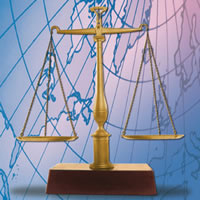Lyon Station Wills & Probate Lawyer, Pennsylvania
Sponsored Law Firm
-
 x
x

Click For More Info:
-
Levine Law, LLC
22 E Grant St New Castle, PA 16101» view mapEstate and Real Estate Law 3rd Generation Law Firm
Levine Law aims to create the most direct, simple, and common sense approach to achieve the client's desired end result.
800-711-7881
Includes: Estate Administration, Living Wills, Wills
Thomas P. Heeney
✓ VERIFIEDEstate, Business, Wills & Probate
Thomas P. Heeney, Jr. was born in Philadelphia, Pennsylvania (1967) and was raised in Doylestown, Buck County, PA where he attended and graduated from... (more)
 Brian Levine New Castle, PA
Brian Levine New Castle, PA Practice AreasExpertise
Practice AreasExpertise

